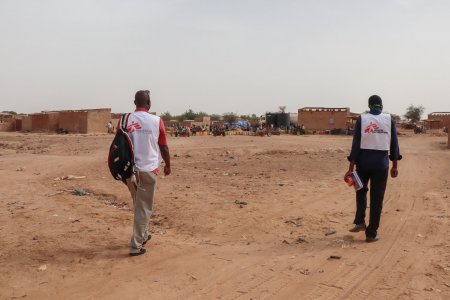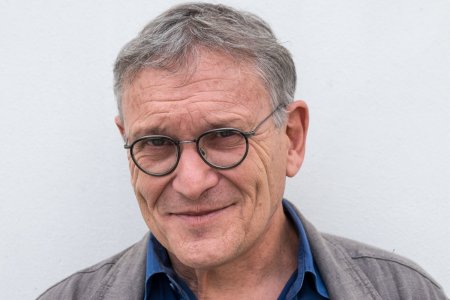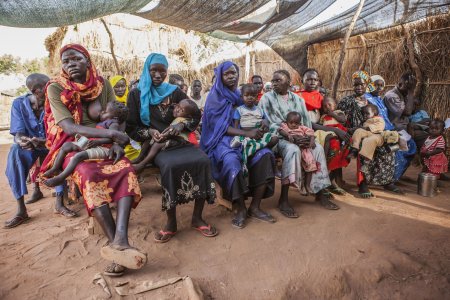
What difficulties does MSF face in the Sahel?
Hamadoun Dicko
Following a series of coups d'état in recent years in Niger, Mali and Burkina Faso, the Sahel region is undergoing a major redefinition. In a context of high insecurity, what are the possibilities for accessing populations? What are the conditions under which our teams are operating, and can we do more? This interview with Hamadoun Dicko, who is in charge of access issues in the Sahel for MSF, was originally published association's website of MSF-France.
Could you first remind us of the context in which we are operating in the Sahel today?
In February 2023, two of our Burkinabe colleagues were killed by armed jihadist groups, who subsequently acknowledged their mistake and apologized. For their part, the Burkina Faso authorities recently imprisoned one of our colleagues for 56 days, during which time he was mistreated. This is the context in which we are working today, in a Sahel region where massacres take place on both sides and coups d'Etat follow one another. Burkina Faso, Niger and Mali have all seen one or more putsches in recent years. These political reconfigurations have seen the emergence of highly militarized powers resistant to humanitarian intervention in rural areas controlled by jihadist groups (essentially the JNIM - Jama’at Nusrat al-Islam wal-Muslimin, and the Islamic State Sahel Province). As a result, we are now faced with operational obstacles, meaning we have to work in urban centers, as it is much more difficult for us to intervene in rural areas. If we manage to negotiate with armed groups to deploy (at least in theory), we come up against resistance from the authorities, who accuse the population of rural areas of being complicit in terrorism. In Niger, where intolerance is strongest, we have witnessed the creation of military zones forbidden to humanitarians, or the imposition of armed escorts, at the risk of collateral damage in the event of an attack on these escorts, or of being perceived as partisans of one side or the other. What all three states have in common, however, is that they are all led by the military in an ever-prolonged period of transition. It seems that, for these new leaders, the coups d'Etat were intended as a kind of revolution.
What do these changes consist of?
In Burkina Faso, for example, the transition period initially scheduled for two years has just been renewed for five, at the end of which the transitional authorities will be eligible for re-election. The same scenario is taking shape in Mali. These states are taking their time, on the pretext of wanting to win back lost territories, to implement long-term institutional and structural reforms, and to "Africanize" their constitutions, which they consider to be inherited from colonization and, as such, unsuitable. The authorities refuse to accept constitutional term limits, or question the Universal Declaration of Human Rights promoted by Western institutions. They also revised their diplomacy. For these new powers, imperialism and Westerners are the fundamental cause of insecurity. All habits must therefore be changed if stability is to be restored. There is now talk of Russian, Turkish and Chinese partnerships, to the detriment of countries like France and the United States, which are being sidelined. The military are also renewing their discourse. Because they were partly responsible for the previous destitutions, unfulfilled promises of rapid restoration of security are giving way to declarations aimed at imposing acceptance of insecurity over the long term. The authorities have decided, for example, not to hold elections until the entire territory is under control. They are also trying to redirect citizens' attention towards other indicators of good governance (ability to stand up to Westerners, improved army equipment, exit from ECOWAS, etc.) and are reducing the space for public expression (ban on political and civil society activities, international press often chased away, national press under pressure, etc.).
What are the reasons why armed groups move into rural areas?
In Mali, for example, major northern towns such as Timbuktu, Kidal and Gao had fallen under the control of jihadist groups allied with Tuareg rebels by 2012. But with the intervention of French forces in 2013, we witnessed a kind of debacle. Having learned their lesson, the armed groups are now turning their attention to the rural areas they can control better, preferring to encircle towns rather than hold them. They control supply lines to urban areas and impose a blockade. Roads are mined, military convoys are attacked, etc. In this way, they try to suffocate the towns, especially as it is easier for them to disperse and escape air attacks in rural areas.
In this balance of power, we see a kind of polarization: urban populations residing in towns defended by the State, and rural or more nomadic populations who negotiate their security with armed groups, even if it means enlisting or paying them a tax to continue to be able to farm, have access to pasture and therefore to means of subsistence. In a way, everyone tends to become what the context forces them to be: whatever your convictions, either you live in a rural area and support the jihadist groups, or you are a city-dweller and support the State.
What are the repercussions for the population?
As a result of this strategy, massacres are multiplying against a rural population suspected of complicity with insurgent movements, further fueling the conflict. But massacres are also taking place on the jihadist side, on the part of the JNIM and above all the Islamic State, following the same accusation of complicity with the adversary. Their actions also complicate the work of NGOs and the crossing of rural areas to reach cities under blockade: despite the possibilities of negotiation, the risk for humanitarians is real, as demonstrated by the murder of our two colleagues in the Boucle du Mouhoun region of Burkina Faso.
Prior to the blockade of urban areas, jihadists also exert pressure on villagers to move to towns, where access to healthcare and basic necessities is extremely difficult. As for rural areas, health care structures are rudimentary and most patients have to be referred to urban centres to receive proper care. And while jihadist groups are generally tolerant of the maintenance of these state-run health structures, health workers are not necessarily comfortable with the idea of staying there, especially as it is not easy to obtain supplies or refer patients due to mobility problems. Moreover, government authorities are not in favor of providing assistance to people in rural areas, arguing that such support is tantamount to backing jihadist groups. In Burkina Faso, however, they are putting pressure on some rural populations who have fled to the cities to return to their home areas, and at the same time encouraging aid providers to deliver services there. This poses the problem of our latitude of action, our ability to assert the impartiality of relief efforts, and the risk of being perceived by jihadists as auxiliaries of the state.
At the same time, the military authorities accept and encourage assistance to the populations of the towns, where, for example, humanitarian flights are authorized to land, bypassing blockades and access difficulties.
In this context of high insecurity and polarization between urban and rural areas that are difficult to access, what questions do you see MSF facing?
Without being exhaustive, I'd first raise the question of profiling and its limits. Today, "white" people can no longer work in the Sahel for security reasons. While several nationalities from the Maghreb and Africa in general are tolerated (including by the jihadists), our projects are still essentially made up of Sahelians who, for sociological reasons in particular, are much more urban than rural. Does this influence our apprehension of the context?
Furthermore, in terms of communication, how far are we prepared to go in denouncing bans or abuses when we almost reflexively consider that they could put us in tension with the authorities?
Finally, on a more operational level, people who have survived massacres are often forced to go to the cities to seek refuge or emergency care. They have generally lost everything and are particularly hard-pressed to adapt to the urban lifestyle and find alternatives for socio-economic reintegration. Here too, there may be an area for development.
To cite this content :
Hamadoun Dicko, “What difficulties does MSF face in the Sahel?”, 24 juin 2024, URL : https://msf-crash.org/en/war-and-humanitarianism/what-difficulties-does-msf-face-sahel
If you would like to comment on this article, you can find us on social media or contact us here:
Contribute


